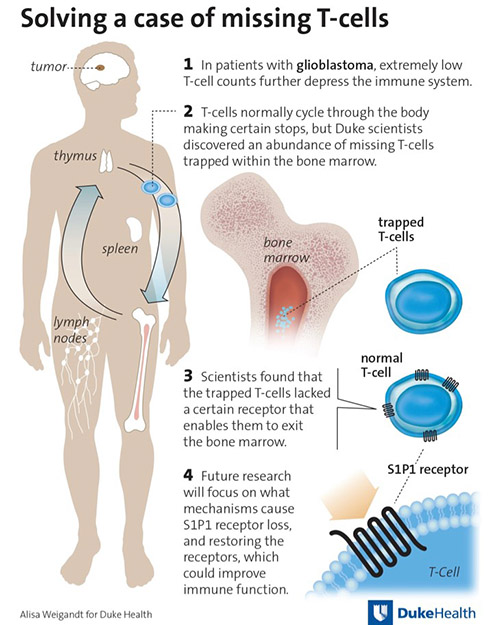
A mysterious lack of T-cells has hindered the immune system’s ability to fight glioblastoma
Glioblastoma brain tumors can have an unusual effect on the body’s immune system, often causing a dramatic drop in the number of circulating T-cells that help drive the body’s defenses.
Where the T-cells go has been unclear, even as immunotherapies are increasingly employed to stimulate the body’s natural ability to fight invasive tumors.
Now Duke researchers led by neurosurgeon Peter Fecci, MD, PhD, have tracked the missing T-cells in glioblastoma patients. They found them in abundance in the bone marrow, locked away and unable to function because of a process the brain stimulates in response to glioblastoma, other tumors that metastasize in the brain and even to injury.
The findings, published in the journal Nature Medicine, open a new area of exploration for adjunct cancer drugs that could free trapped T-cells from the bone marrow, potentially improving the effectiveness of existing and new immunotherapies.
Read the entire press release here.
